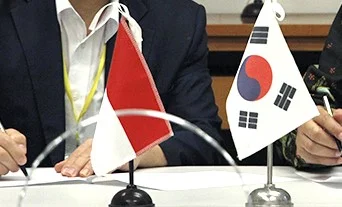Sovereignty...with strings attached: UK trade deal prospects post-Brexit
/In October 2017, I was fortunate to have the opportunity to contribute an opinion piece for fDi Magazine, a bimonthly publication from the Financial Times specializing in Foreign Direct Investment. It provides an analysis of the UK's trade deal prospects in the context of Brexit. I've provided an extract of the piece below, with a link to read the full article at the end:
Leading advocates of Brexit foresee a ‘global UK’, unshackled by EU institutions and legislation, and free to trade and invest on new terms with the more exciting markets of the world. Yet there is mounting evidence to suggest that the UK’s trade and investment prospects will nevertheless remain heavily influenced by the EU.
No one can deny that the past year at the UK’s Department for International Trade has been eventful. Within this time, the department’s ministers have conducted more than 90 international visits, while 10 working groups were established in 15 countries. The UK’s global trade ‘charm offensive’ remains in full swing, with no lack of positive, encouraging bilateral discussions to draw on.
Bolstered by a belief that ‘Brexiting Britain’ is top of mind among the great and good of the trading world, some champions of Brexit have even claimed that many UK trade deals could be worked out in a matter of months, rather than years. Following the election of US president Donald Trump, former UK Independence Party leader Nigel Farage predicted that a UK-US trade deal could be signed within three months. Even when it comes to the UK’s future trading relationship with the EU, there’s an optimistic belief that such matters do not need to be complex, with international trade secretary Liam Fox claiming that the UK-EU trade deal “should be one of the easiest in human history”. Straightforward, speedy deal-making seems to be one of the key offers the UK is putting on the table.
Supporters of Brexit point out, with some validity, that future bilateral trade deals with the UK should be far less onerous and complex than those developed with the EU, with 28 (soon to be 27) member states. They point to the fact that the EU-Canada Comprehensive Economic and Trade Agreement took seven years to finalise and was nearly scuppered at the last minute not by a national government, but by a regional one (Wallonia in Belgium). This is taken by Brexit supporters as a sign that the EU is a sluggish trade interlocutor, even with like-minded Western partners.
Size matters
Yet many of the world’s economic hotspots appear to be prioritising market size and potential over any considerations of a quick, easy deal. And when it comes to market size, the EU has an undisputed advantage as the world’s largest single market with a population of more than 500 million, compared with the UK’s 60 million.
Take Indonesia as one example of a country that has adapted its priorities to this economic reality: a south-east Asia economic powerhouse, and the world’s fourth most populous country, is currently negotiating a Comprehensive Economic Partnership Agreement with the EU, and the chairman of Indonesia’s Investment Board (formerly the country's trade minister) Tom Lembong has made it clear that Indonesia intends to use its agreement with the EU as a model for any future agreement with the UK. In other words – the EU agreement will come first, and UK leaders should be following its progress very closely.
To read the full article, visit:








